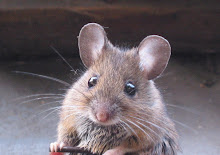Gosh - sorry about the incommunicado-nicity of late. Mr. Mouse and I were having a most excellent weekend of spring skiing (sunshine and soft snow) and therefore nowhere near a computer. Plus, the Lost hiatus has really thrown me off recap-wise; I'm all askew. But it's back! This week! Lost returns Thursday night! And I'll be up 'til frackin' 1:00 a.m. Friday morning finishing the recap ... I'm not complaining, mind. It just better be a good episode.
Anyhow, I finally finished Children of God by Mary Doria Russell, the sequel to The Sparrow. In this sequel, we return to the planet Rakhat a full generation after the Jesuit expedition of the first book. Russell again puts into play the dual narrative device, following Emilio Sandoz, who has quit the Church and is subsequently kidnapped and taken to Rakhat against his will; and also Sofia Mendes, a member of the first expedition who was abandoned on the alien planet, thought dead. When Sandoz finally lands on Rakhat, he finds the planet in complete turmoil, the sophisticated and predatory ruling class having been overthrown by their serfs. Sofia is at the center of the revolution, using her decidedly human ideas to enlighten and free the masses.
As before, I feel Russell rushed through the last few pages to finish things up. She did spend more time on the planet with Sofia, as the stranded woman had to learn to adapt and live in a completely alien environment, but even if this book is supposed to be about the journey rather than the destination, but I felt shortchanged by the time the book ended.
Where The Sparrow explored the nature of God, man and faith, Children of God deals with the aftermath of disaster - physical, emotional, societal - and the role family plays in the rebuilding. Sandoz leaves behind his Jesuit brethren and finds some comfort with a traditional family when he meets a woman he nearly marries. Sofia and her autistic son are adopted by a Runa clan on Rakhat. At the beginning of the book, Sandoz has a physical aversion to children, a guilt-ridden reaction to his unintended murder of Askana, and by the end he not only meets but gladly holds his infant grandson.
My friend Kevin C. thinks that this is a better book than the first one. That may be - I think I may have done Children of God a disservice in that I read it piecemeal over the last six weeks or so and I suspect it is a better read when read more cohesively. My recommendation is that if you enjoyed The Sparrow you will enjoy Children of God and should read both books to get the full story.
18 hours ago






No comments:
Post a Comment